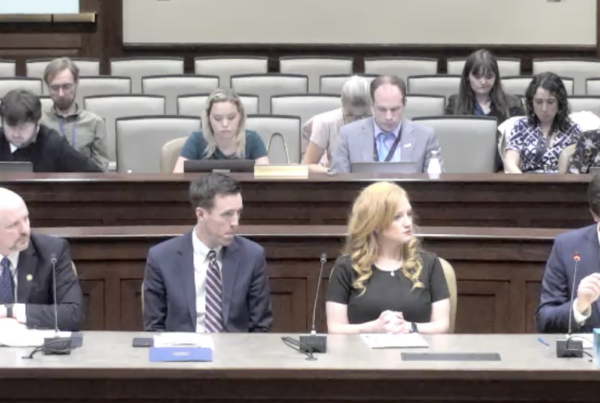How does articulating admiration qualify one to serve on a state board?
4/14/23 UPDATE: The Arkansas Democrat Gazette reports the Sanders administration blames their web vendor for the admiration requirement. Jury is still out on whether or not Arkansans believe this.
4/12/23 UPDATE: Since we posted this story, the page requiring the adoration response is down. Did the Sanders administration remove it or was there a giant wave of applicants that the caused the page to crash? The world may never know.
The Governor gained attention on Twitter this week when a former legislator, who happens to be conservative, called her out for a question in her website’s application for board and commission appointments. The questionnaire required a short answer to “What is an accomplishment of the Governor’s that you admire the most?”
Before we explore why this requirement is problematic, let’s break down the basics of Arkansas’s hundreds of boards and commissions.
Boards and commissions are groups of advisors made up of stakeholders, experts in a given field, or otherwise qualified individuals to oversee parts of government or industry in the state of Arkansas. The legislature establishes most of these groups in statutory creation language, and the governor appoints members to most of the groups. Boards and commissions meet at various times throughout the year to consider business and conduct oversight, and almost none are paid for their work on the commission or board.
These boards and commissions are often bipartisan, focusing on the issue or topic assigned by the statute that created it. The administration’s website claims “The Governor … seeks the most qualified candidates for these appointed positions.” The application asks several expected questions about educational history, employment experience, certificates, titles, licenses, etc. While these are standard questions to apply for any job or appointment, they are not required like the prompt to admire the Governor.
We can’t believe we have to type this, but a statement of admiration does not qualify one to serve on a state board or commission.
Remember how members of the legislature were threatened with removal of appropriations when they spoke out against Sanders’ education bill? This is not unlike the backlash Sanders has received for her disdain for the press. She has been criticized for requiring a certain high level of approval and knee-bending for members of the press to have access to interviews, and it appears from this application that appointees will have to prove their loyalty in a similar fashion.
Filtering out those who refuse to offer praise and adoration is a move toward authoritarianism, a core tenet of fascism. We know these are strong words, but the facts don’t lie. Criticizing the choices of those in government is a right in our democracy, but not, it seems, in the Sanders administration.





